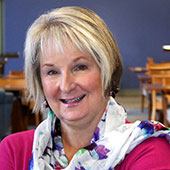
On March 16, 2020, the University of Maryland, Baltimore (UMB) moved to mandatory telework in response to the COVID-19 pandemic. At the time, it was impossible to predict that most of campus would still be working and learning from home over a year later.
When the HSHSL building closed on March 16, 2020, the Library quickly transitioned in-person services to virtual to continue supporting the needs of the campus community. Instruction and reference consultations moved to online platforms and webinars; interlibrary loan found new ways to fill over 28,000 requests for articles and books; and contactless book pickups ensured the collections remained accessible. The HSHSL transitioned some long-standing in-person events, such as Meet the Makers, to a virtual format, drawing new audiences from beyond UMB and Baltimore. Instruction sessions and workshops focusing on the pandemic were offered virtually for researchers, health-care providers, and the community. In total, 128 virtual classes were offered, reaching over 3,000 people. We also continued a partnership with the School of Pharmacy and Walgreens to host the third annual Flu Shot Clinic.
When the staff in the HSHSL’s Innovation Space saw the high demand and low supply of personal protective equipment, they took the Library’s 3D printers home and began 3D printing items for by the School of Nursing and UMMC. To date, 1,354 items have been printed.
The Library also launched new services during the pandemic. In October 2020, the HSHSL established an Open Access Publishing Fund to help defray article processing costs for early career UMB researchers. And the HSHSL’s Center for Data and Bioinformation Services (CDABS) launched in February 2021 to support data and bioinformation learning, services, resources, and communications at UMB. The Regional Medical Library (RML) wrote a successful grant to keep the RML at UMB for another five years.
The HSHSL added over 2,700 items to the UMB Digital Archive during the pandemic year, including UMB Response to Novel Coronavirus (COVID-19), a new collection of more than 370 items – news releases, letters, Elm stories, videos, photographs, and more – that will memorialize UMB’s response to COVID-19 and tell our collective stories for future researchers and historians. The HSHSL also launched its own campaign, UnMasking a Pandemic: Stories from UMB during COVID-19 Project, to collect personal stories from the campus community.
Throughout the pandemic, the HSHSL has found ways to bring its staff and the campus community together. In May 2020, the Library introduced a Coloring Book and a collection of virtual puzzles. In June 2020, library staff found ways to give back to their communities by participating in a virtual hour of service. Library staff also competed in UMB’s Summer 2020 Ultimate Mileage Battle, taking top prize for the highest daily average steps.
As more people get vaccinated and the end of the pandemic becomes more than a distant possibility, it’s important to celebrate the many victories in a time of enormous uncertainty. The HSHSL is no exception. As a Library, we have come together virtually and in socially distant ways to continue providing top-notch services to the UMB campus. While the Library building has been open in a limited capacity since September 14, 2020, we look forward to the day when we can open our doors fully to the campus and host large in-person events, exhibits, and celebrations once again.
To see more of the accomplishments of the HSHSL during the pandemic, check out our website, HSHSL By the Numbers During COVID-19.











